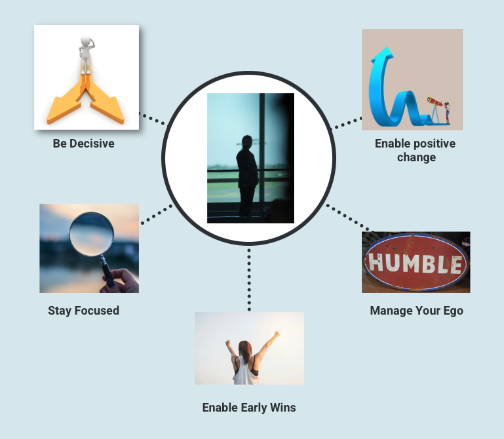Crafting the perfect farewell!
As most of you know, after almost two decades at EVENTEQ / ETP, I decided it was time for me to move on to new adventures. I had worked for over 15 years with some of the team members, and they had become family. My emotional connections ran deep and wide across the organization. I was not leaving for any negative feelings towards it.
Much thought has been given to and written about the first 90 days on the job. We rarely talk about the last 90 days or longer. Yet a deserving leader's assessment, like reputation and legacy, is most heavily influenced by their exit. How they exit is more accessible in people's memories than the impressions created at the start. When was the last time a leader left your organization, and you remember what they did in their first 90 days?
In my last year at ETP, I considered how deserving leaders can best exit an organization. These tips can help any deserving leader navigate their exit.
Be decisive: The decision to leave and its reasons must be genuine and firm. True deServing leaders don't threaten to go out of contempt or to use it as leverage to gain professional or economic gains. They leave because they genuinely believe in, have thoroughly processed their reasons for leaving, and are confident it's time. While leaving can have a profound emotional and psychological impact on you, that impact can even be more profound on those you serve. Having those you serve be part of an emotional rollercoaster because you have second thoughts after announcing your decision prohibits you from effectively supporting their emotional and professional needs during the transition.
Stay Focused: When leadership changes, employees can spend much time thinking about and protecting themselves, creating situations that prohibit them from focusing on customers, their teams, and meaningful decisions. deServing leaders aim to prevent this type of momentum loss by reinforcing priorities and aiding in decision-making -- to the last day. They help their teams best prepare for the transition.
Enable early wins: While a deserving leader still holds the title and earns the salary, they must do their best to set the trajectory for their successor's success. Enabling and announcing a few early wins in the early days helps build a strong foundation for the next leader. Helping your team identify 2 to 3 meaningful accomplishments helps secure a strong transition and momentum.
Manage your ego: It can be confusing for your teams to differentiate that your goal is to ensure organizational momentum rather than just grasping to hold onto power. Transitions can evoke inherent insecurity, especially as teams anticipate reporting to a successor. A deserving leader must exercise emotional intelligence to not over-interpret or over-react and ensure that their reactions and responses are best suited to set up the organization and its successor for success.
My parting thought to my leadership team was the irony that perhaps my most significant contribution to the organization was to impact change by leaving. I used the above tips to ensure I did my best to use my departure for positive change. When done using integrity, focus, and keeping your ego in check, a deserving leader's transition can ensure a positive transition for the organization. When it's over, it's over. An accurate measure of a deServing leader's departure is when the team embraces the new leaders despite feeling sadness over your departure.


